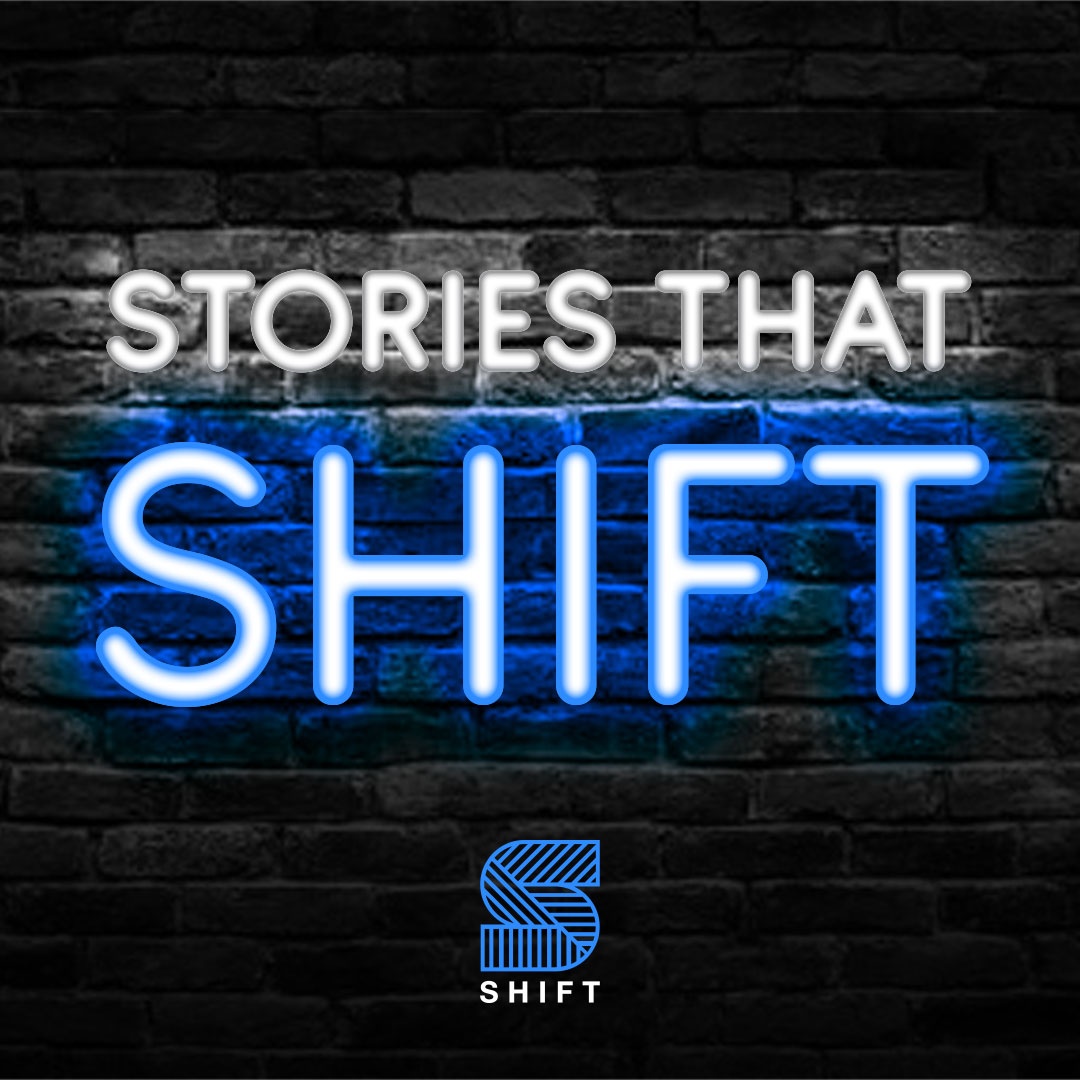Do You Have a Pulse?
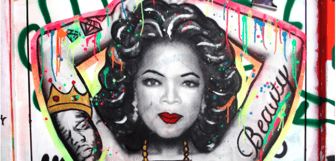
What do Oprah Winfrey, Walt Disney, and Stephen King all have in common?
They are considered to be some of the world’s greatest storytellers.
Luckily, you don’t have to be wildly famous to be a storyteller. Check your pulse. Have one? YOU’RE a storyteller! It’s in our nature as human beings to tell stories because that’s how we connect and communicate. When we’re intentional about the stories we tell, we have the opportunity to educate, inspire, create movements, and help us to open our minds to all of the possibilities of our agency. And because of pandemic isolation, we are more engaged in each other’s stories because it’s how we stay sane and connected.
What do stories have to do with business? Everything.
In the competitive business world, retaining employees and customers aren’t reliant on capital. Instead, it’s on establishing a connection. Both employees and customers engage most with companies with compelling stories. When an employee or customer can see a company's vulnerability, hopes, and dreams reflected in themselves, something priceless happens - a shared connection occurs. Airbnb, for example, has a whole web page dedicated to connecting people with shared stories! Most of us know Warby Parker, Burt’s Bees, and Nike because they don’t push the product; they share stories that resonate with their consumers.
So, where does your story come from? Stories are like water. It’s vital for all parts of life and comes in different forms. The same applies to commerce. Your business culture has a plethora of untold stories waiting to be told! Some may be in the form of onboarding new employees, others in connecting with potential customers. In any form, telling those stories (and listening!) does more than creating connections. It impacts our brains and overall health. Check out these gems:
- Storyteller’s words can shape the brain activity of listeners. Dr. Uri Hanson, a neuroscientist and researcher at Princeton has found that stories influence brain chemistry - check this out.
- Stories require us to maintain a universal truth: all of us possess the ability to change. Dr. Daniel Amen found this truth after analyzing 83,000 brains.
If you can change your story, you can change your life - watch this.
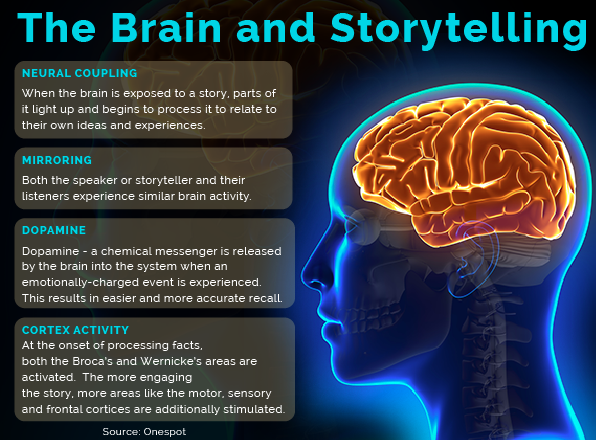
“The most powerful person in the world is the storyteller. The storyteller sets the vision, values, and agenda for an entire generation that is to come.” - Steve Jobs
How are stories told in your organization? More importantly, are they being told?
“T” is for…Tacos?

No, “T” is for TRUST.
We’ve spent the last 20 years surveying employees across the globe, and a hot topic that always arises: trust.
According to Edelman’s Trust Barometer, the lack of trust is everywhere. Yet, businesses get the award for most trustworthy (compared to government, NGOs, and media).
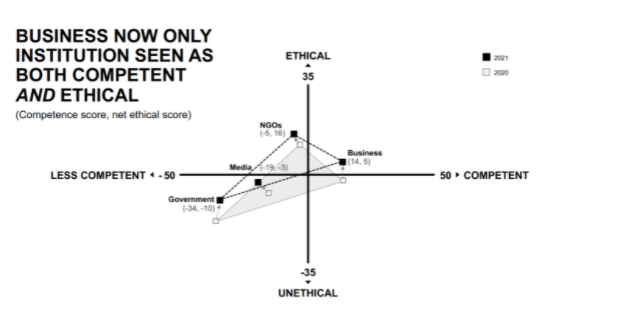
So what creates trust? Where does it come from, and why is it important?
John Gottman’s research says trust is built in the smallest of moments, the sliding door moments. Covey has an assessment to understand your trust quotient, and Charlie Green has an advisory service and formula to quantify trust.
Brene Brown uses the acronym BRAVING for trust because you are braving connection with someone. We love her work: “B” is for boundaries, “R” is for reliability, “A” is for accountability, “V” is for vault, “I” is for integrity, “N” is for non-judgment, and “G” is for generosity.
And at SHIFT, we teach trust as:
- Sincerity: Are we genuine and honest?
- Reliability: Do we keep our word?
- Competence: Do we have the skills to do the job?
Have you ever left a conversation with someone and couldn’t put your finger on what felt off? It’s happened to all of us. Do a quick test and see if sincerity, competence, or reliability are in question. This model has helped me figure out what is missing relative to trust - time and time again.
Trust starts with ourselves.
How often do we betray ourselves by doing and saying things that don't align with who we are and what we want? How often do we put the needs of others before our own to please? We do these things daily - it's human - and it erodes our trust.
To trust others, we must first trust ourselves, and from that place, we’ll see our relationships grow.
I Can’t Get No… Satis-faction
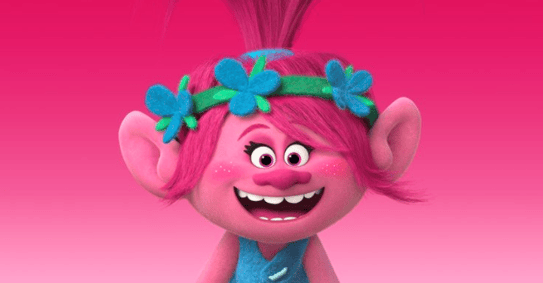
Is anyone happy at work? Does everyone dread Mondays - crazy to imagine that many dread 1/7th of their lives!? Are there people who love their job? If so, why? (That’s a lot of italics, but if there’s one thing we’d like to be emphatic about, it’s happiness—particularly at work.)
What do the numbers say?
Statistics are all over the place when it comes to surveying happiness at work. CNBC polled 8,664 Americans in 2019 and found that 85% were happy, but a month later, Forbes reported that a mere 41% of people polled were happy at work… and that was before COVID. One study in the Journal of Applied Psychology of identical twins reared apart found that about 30 percent of job satisfaction is genetic - how fascinating!
All studies have a through-line for happiness: There must be value and worth in the day-to-day.
Added Value
The happiest employees are those who match values with their employer.
This is especially true when the values have special moral, philosophical, or spiritual significance. It’s not so much about what you do for a living, but who you’re working with and how accomplished you feel at the end of the day. So, what are the secrets to a happy work life?
- Purpose – People feel a sense of purpose when their values line up with their organization's values
- Earned success – When an employee receives positive feedback for their work or are encouraged to learn new skills
- Service to others – Simply put, people like to feel connected to others and have a sense that they are helping in some way
- Resilience – If people feel like they have a support system to fall back on when things get tough, their loyalty will deepen
And some lucky people just have a more positive disposition to life.
May we all be a little like Poppy from the movie Trolls and live life to its fullest, with more lightness in our steps and happiness in our hearts.
Join our Stories that SHIFT Newsletter
Subscribe to get your weekly dose of inspiration, stories, resources and entertainment delivered straight to your inbox every week. You’ll be happy you did!


